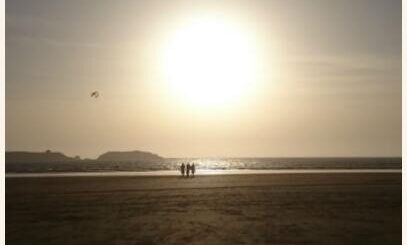Benin Government and Politics
State and politics

Benin was a military-controlled and Marxist one-party state from the 1970s, but in a 1990 referendum adopted a new democratic constitution. The country has since developed into a relatively well-functioning democracy.
GOVERNMENT
According to the constitution, the executive power comes with a people-elected president, who is elected for a term of five years and can be re-elected once. The President appoints the government and directs its work. The legislative power comes to Parliament with 83 members, who are elected for four years in proportionate elections.
Policy
The transition to democracy in Benin has been peaceful. As the first country in Africa, Benin organized a national conference in 1990, attended by delegates from some fifty organizations. In the first free presidential election in 1991, Nicéphore Soglo (born 1934) was elected president. He embarked on economic liberalization and austerity policies to address the huge budget deficit. The measures led to dissatisfaction, and he was accused of a lack of interest in social issues, in authoritarian rule and in nepotism. After the 1995 parliamentary elections, Soglo received the National Assembly, and in the 1996 presidential elections, former dictator Mathieu Kérékou regained power with the support of 52 percent of voters.
Kérékou was re-elected in 2001, but the main contenders, including Soglo, boycotted the second round of elections in protest of alleged irregularities in the first round. In April 2006, Kérékou was succeeded as president by partisan economist Boni Yayi, who previously was head of the West African Development Bank, among others. He formed a government mainly consisting of expert experts. In 2011, Yayi was re-elected with 53 percent of the vote in the first round.
Up until the 2003 parliamentary elections, the National Assembly was dominated by the Parti de la Renaissance du Bénin (PRB), founded by Soglo. The position as Parliament’s largest party was then taken over by Union pour le Bénin du futur (UBF), which was close to Kérékou. Ahead of the 2007 elections, the Alliance Cauris pour un Bénin émergent (FCBE) formed the alliance, which supported President Yayi and became the largest party with 35 out of 83 seats. FCBE backed two terms in the 2015 parliamentary elections but retained its position as the largest party.
During his second term in office, President Yayi worked in vain to bring about changes to the constitution, which the opposition feared would also mean an attempt to introduce a third term for the president. Ahead of the 2016 election, FCBE launched the Prime Minister since June 2015, Lionel Zinsou (born 1954), as his candidate. He got the most votes in the first round, but in the second round he was clearly defeated by Patrice Talon, who was running as an independent candidate and was elected president with 65 percent of the vote. Talon previously supported Boni Yayi but was accused in 2012 of participating in a conspiracy against the president; he was pardoned in 2014.
New tough demands placed on political parties under the electoral law introduced in 2018 resulted in only two parties being allowed to stand in the 2019 parliamentary elections. Both parties – Union progressiste (UP) and Bloc republican (BR) – are loyal to President Talon.
Judiciary
The substantive right is based on the country’s French legal heritage in combination with local customary law. The judicial organization consists of local courts in each district as well as the Supreme Court in Cotonou. Benin abolished the death penalty for all crimes in 2016.
Human Rights
Women are subjected to discrimination, even though Benin’s constitution provides for gender equality. Few women hold political office. Marital abuse is punishable but is rarely investigated as these crimes are considered family affairs. About one in five women in the country are sexually stunted, although mutilation is prohibited.
Marriage to children under the age of 14 is prohibited but occurs mainly in rural areas. Forced marriage also occurs. Benin is a country of origin, transit and destination for human trafficking, primarily women and children, which is expressed in forced labor and sexually exploited by children.
Conditions in the country’s prisons are difficult and in some respects life-threatening. Insufficient food, overcrowding, poor sanitary conditions and lack of health care have led to death. Benin’s penal code includes the death penalty. However, executions have not taken place since the 1980s. Arbitrary police arrests occur, but police officers who commit abuse through the use of force are rarely punished. Benin has a number of violent citizenship.
Access to free information in the country is limited. Restrictions on freedom of expression and press as well as freedom of assembly are common. Offending the president is a serious violation of law. Several journalists have been charged with slander and media workers are practicing self-censorship to a great extent.
Heads of State
Presidents since 1972
| 1972-91 | Mathieu Kérékou |
| 1991-96 | Nicéphore Soglo |
| 1996-2006 | Mathieu Kérékou |
| 2006-16 | Boni Yayi |
| 2016- | Patrice Talon |



